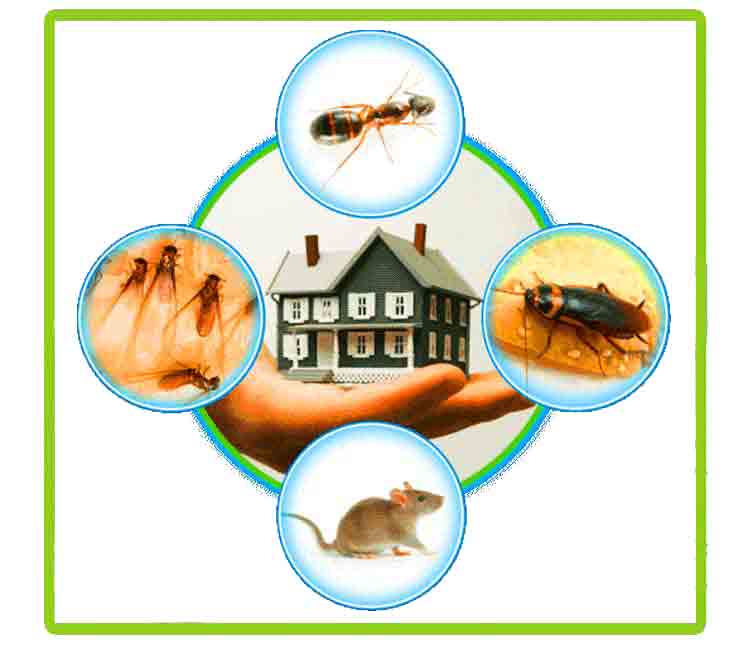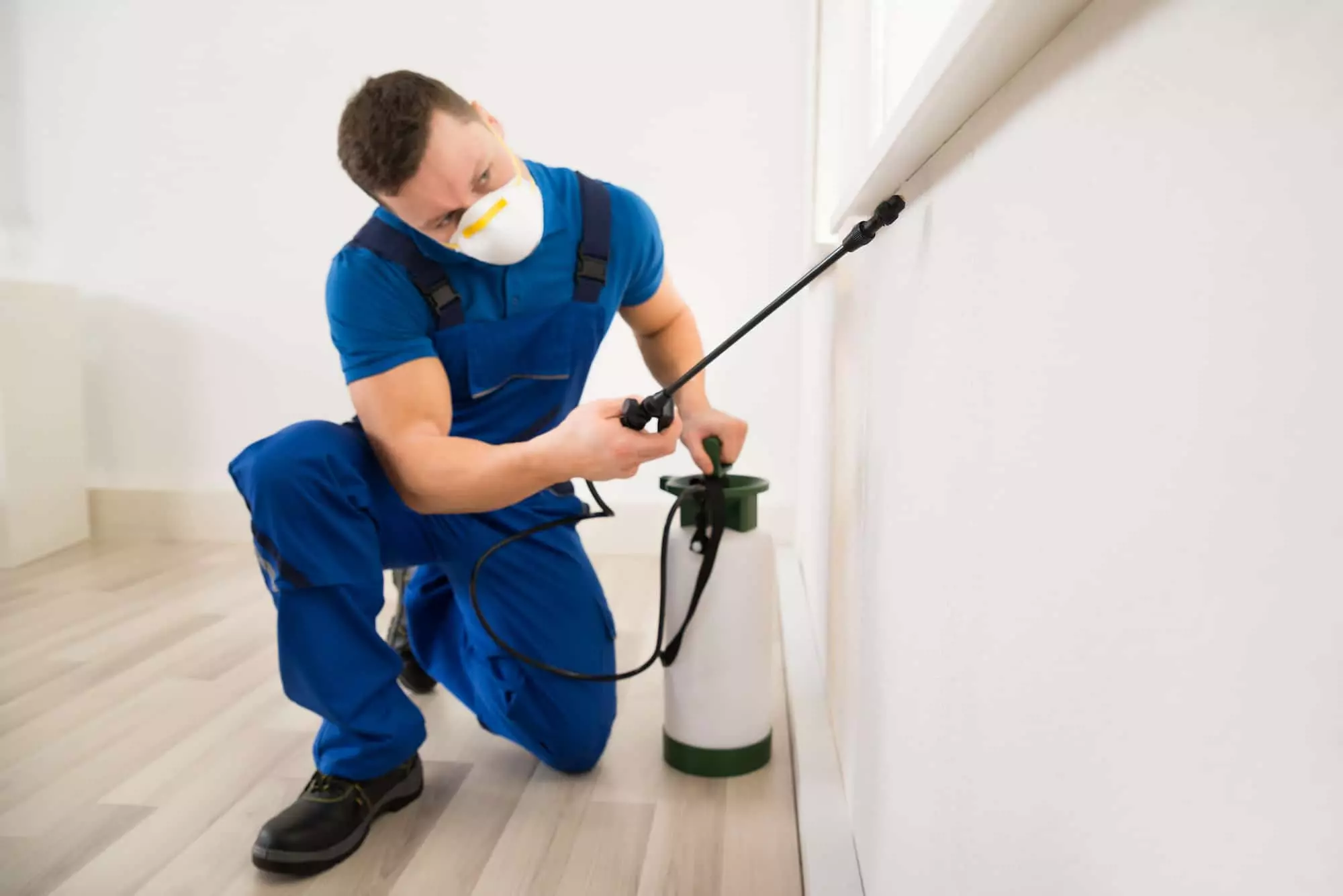Safe and Reliable Pest Control for Lasting Protection
Reliable parasite management requires a diverse approach that balances environmental integrity with the need for efficient insect suppression. The nuances of these techniques may not be promptly clear, motivating a more detailed assessment of the methods that can lead to sustainable bug control end results.
Comprehending Pest Control Techniques
Insect control includes a variety of methods targeted at handling and eradicating unwanted bugs and rats that can intimidate both health and wellness and building. Understanding these approaches is essential for reliable pest monitoring.
The primary categories of bug control methods include mechanical, biological, and chemical methods. Mechanical methods entail physical obstacles and catches to avoid pest access and capture undesirable species. As an example, using displays on home windows or utilizing sticky traps can significantly decrease parasite populaces without introducing damaging substances.

Chemical pest control is frequently the most recognized approach, making use of chemicals to eliminate pests. These chemicals can be reliable but need to be made use of with care to stay clear of unfavorable effects on non-target species and the setting.
Benefits of Eco-Friendly Solutions
Exactly how can green options transform pest control techniques? The fostering of environment-friendly pest control methods provides many advantages, dramatically improving the effectiveness and safety and security of pest administration.

One more advantage is the positive impact on regional biodiversity. Green options are created to target certain insects while protecting useful bugs and wildlife, advertising a well balanced ecosystem. This technique lines up with the expanding customer demand for sustainable techniques, enhancing the track record of insect control carriers.
Integrated Pest Administration Strategies
The application of green services naturally results in the fostering of Integrated Pest Monitoring (IPM) strategies, which better boost parasite control efficiency. IPM is a holistic strategy that combines multiple methods to take care of parasite populations while decreasing ecological influence. This technique highlights making use of organic, social, mechanical, and chemical controls, guaranteeing a balanced and lasting method of bug administration.
One fundamental element of IPM is the detailed analysis of insect activity and environmental conditions. By keeping track of parasite populaces and determining their life cycles, professionals can carry out targeted interventions that interrupt the insect's environment or lifecycle, decreasing reliance on chemical pesticides. In addition, cultural practices such as crop rotation and habitat adjustment can substantially reduce insect establishment and reproduction.
Another crucial part is making use of organic control representatives, such as useful pests or bacteria, which can normally reduce parasite populations. When chemical applications are essential, IPM focuses on using low-risk chemicals and applies them uniquely, lessening read review direct exposure to non-target microorganisms and people.
Including IPM methods not only improves pest control efficiency however additionally promotes a much safer ecosystem, aligning with the growing demand for sustainable techniques in pest administration.
Safe Practices for Home Owners
Comprehending the importance of safe techniques in bug control can encourage homeowners to effectively take care of bug issues while protecting their health and the setting. Applying preventive procedures and safe approaches is critical in reducing direct exposure to dangerous chemicals.
House owners need to first assess their setting for problems that draw in pests, such as standing food, water, and clutter waste. Regularly cleaning and sealing entrance factors can prevent pests from attacking the home. Utilizing all-natural deterrents, such as important oils or diatomaceous planet, can give reliable choices to chemical pesticides.
When chemical treatments are essential, house owners must choose items that are particularly classified as risk-free for description property use. It is important to follow application guidelines thoroughly to avoid too much exposure. Making use of targeted treatments in areas where parasites are identified, rather than covering spraying, can dramatically reduce chemical use.
Finally, preserving open interaction with insect control experts is crucial. Homeowners ought to inquire concerning the safety of products made use of and request environment-friendly options whenever feasible. By adopting these safe practices, homeowners can develop a much healthier living setting while effectively managing insect issues.

Tips for Long-Term Protection
Establishing an insect administration strategy that emphasizes long-lasting protection can greatly improve the performance of the secure practices previously gone over. To achieve this, home owners must implement normal examinations of their home, concentrating on hidden locations such as attics, basements, and crawl spaces. Early detection of pest activity is crucial in avoiding invasions from taking hold.
Furthermore, maintaining a clean setting is important. This consists of proper food storage, promptly cleaning spills, and routinely dealing with trash. These practices lower attractants that attract pests into the home. In addition, securing access points, such as cracks around home windows and doors, can effectively block possible pest gain access to.
Landscaping needs to likewise be taken into consideration; keeping plants trimmed and keeping a range in between plant life and the home minimizes hiding spots for bugs. Using natural deterrents, such as necessary oils or diatomaceous planet, can better inhibit invasions without turning to harsh chemicals.
Finally, collaborating with a professional pest control service for regular analyses can offer an extra layer of safety and security. These professionals can use customized recommendations and progressed treatments, guaranteeing that your home remains protected against pests in the long-term.
Conclusion
Finally, dependable and risk-free insect control requires a multifaceted method that highlights green approaches and integrated insect management. By implementing natural deterrents, carrying out routine examinations, and maintaining proper cleanliness, homeowner can considerably minimize pest populations while shielding beneficial insects and the setting. Cooperation with professional insect control solutions boosts the efficiency of these strategies, making certain customized services that provide enduring security and assurance against future problems.
Reliable bug management needs a complex method that stabilizes ecological honesty with the need for efficient parasite suppression. The adoption of environment-friendly bug control methods offers many benefits, dramatically improving the effectiveness and security of parasite monitoring.The execution of green solutions normally leads to the adoption of Integrated Insect Monitoring (IPM) techniques, which better improve insect control efficiency. pest control exterminator coquitlam. By keeping an eye on pest populations and determining their life cycles, specialists can execute targeted treatments that disrupt the pest's habitat or lifecycle, decreasing dependence on chemical pesticides.In conclusion, risk-free and trusted bug control needs a multifaceted technique that highlights environmentally friendly approaches and incorporated insect administration